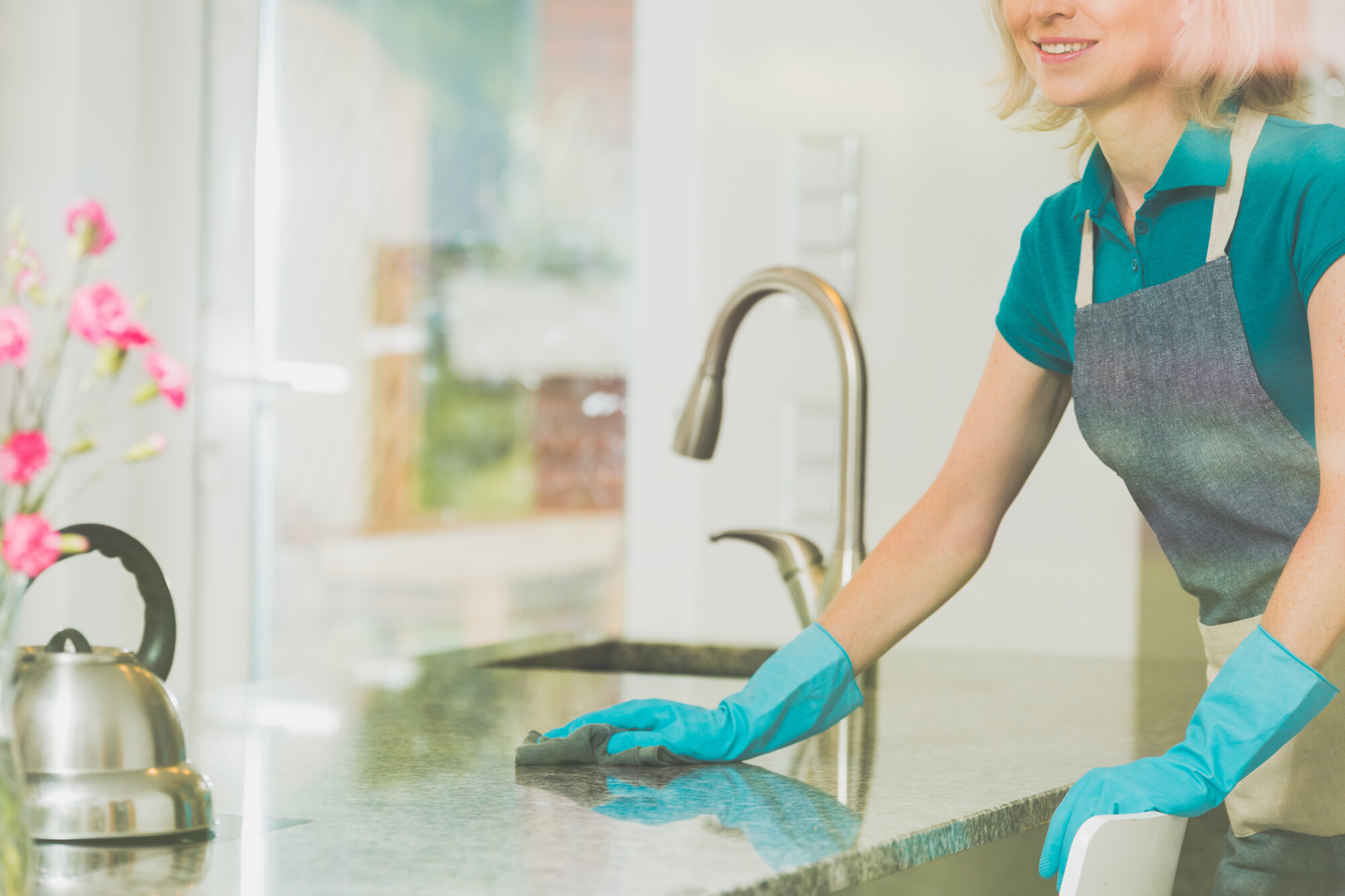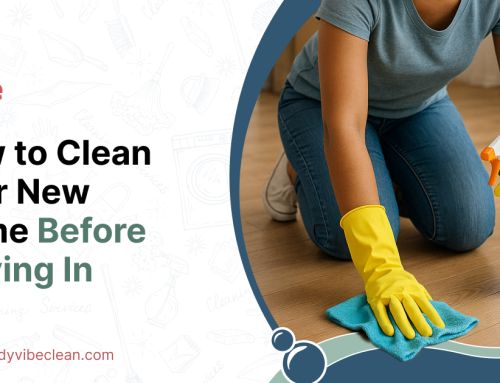Most of us now understand the damage wrecked to the environment by harsh chemicals and the use of plastics.
But did you know that toxins in household products can impact our health, too? Recent research has discovered that chemicals found in cleaning products could affect our respiratory system.
Taking time to overhaul your cleaning routine to make it more eco-friendly is time well spent. To help you do that, here are some of our top kitchen cleaning tips that will give you that shiny, polished kitchen without the environmental impact.
1. Reduce Paper Towels
Did you know that America uses more paper towels than anywhere else worldwide?
That’s a lot of single-use towels, even if you opt for recycled paper. However, there are other more eco-friendly ways to clean your countertops or wipe away spills on the kitchen floor without using paper. And the best part is – it’ll save you money, too!
First, you could try microfiber cloth.
Manufacturers make microfiber cloths from biodegradable materials such as polyester. So they make an excellent eco-friendly cleaning option for your home.
They are also robust and easy to rinse, so you can reuse the same cloth for cleaning multiple times without replacing it. Plus, microfiber is highly absorbent, so you can quickly soak up all those messy spills.
The other excellent cleaning material is the traditional sponge, which most households used before paper towels became ubiquitous!
The best feature of sponges is their high absorbency. They should be your first choice when cleaning up liquids. And a quick rinse under a tap is often sufficient to wash away the dirt from a sponge so you can reuse it.
Modern manufacturers make sponges from hemp, cotton, or bamboo. So they are sustainable and biodegradable.
2. Try Homemade Cleaning Products
Instagram and Pinterest are awash with recipes for homemade cleaning products, so it’s undoubtedly a recent trend.
And it’s easy to see why. Homemade products are often far more eco-friendly than chemical-laden cleaning products.
Chemical-based cleaning products often have harsh chemicals which have a longer-term and more negative environmental impact.
Sometimes, the ingredients in a robust cleaning solution even have toxicity. Using natural ingredients means they won’t damage the environment when washed away down the sink.
You have another compelling reason to use your homemade cleaning products for kitchen counters. It means you aren’t buying plastic-packaged goods, so there is less packaging waste.
If you haven’t made cleaning products before, you may be surprised by how easy it is to do. Here’s a simple recipe you can try with products you probably already have in your kitchen.
Mix warm water, baking soda, white vinegar, and a small amount of eco-friendly hand soap.
You want a thin consistency that you can add to a spray bottle. Stir the ingredients together and transfer to an old spray bottle. Give the ingredients another shake, and it’s ready to use.
3. Reduce Toxins in Cleaning Products
If you don’t have the time to create homemade cleaning products, there are many eco-friendly cleaning solutions on the market. But you do need to know how to find the ones that are free of toxins and eco-friendly.
First, always read the labels before you buy a cleaning product. Chemicals to avoid will include chlorine, phthalates, and triclosan.
Secondly, many eco-friendly manufacturers get their products certified by an independent third party.
Always look for these labels on the bottles. Popular labels to scan include the Green Seal, the USDA BioPreferred, and The Natural Products Association.
Check the packaging on a product, too. Some packaging is more toxic than others, and some bottles are not biodegradable.
PLA (polylactic Acid) is the best material for cleaning products, as it’s made from natural ingredients (including cane sugar!). So it’s biodegradable and environmentally sustainable.
Opt for products with essential oils instead of chemical fragrances if a product is scented. And if the product contains a dye, choose natural dyes rather than something with chemicals.
4. Reduce Single-Use Plastics
Sometimes you will buy cleaning products stored in plastic. But there are lots you can do to reduce your everyday use.
Firstly, buy bigger bottles of cleaning products. A large two-liter bottle will contain less plastic than four 500-milliliter bottles.
When buying soap, choose a traditional bar of soap rather than the liquid soaps that often come in plastic containers. You can often buy traditional bars in recycled paper, so it’s a far more environmentally friendly choice.
When leaving leftover food in the kitchen, swap plastic wrapping for a more natural product such as beeswax. Reusable silicon is another environmentally sustainable choice.
Invest in proper storage for your cleaning products, too. A wooden box or one made with biodegradable material will stop you from storing items in plastic bags.
Avoid plastic scrubbing brushes, too.
While these aren’t necessarily single-use, they don’t last long and will mean you regularly buy and throw away plastic. Instead, buy a brush design with a detachable, replaceable head, or choose a silicon-based material.
5. Compost Food
Part of your kitchen cleaning routine will be about disposing of uneaten food from your family dinner, vegetable peel during food prep, or bones from meat. So consider how you dispose of this during your cleaning routine.
Composting is a fantastic way to reduce uneaten food or peel that typically finds its way to a landfill.
You have two options for composting food. You can either have a separate food bin or add it to a composting bin in your garden.
When you compost food waste, you gradually end up with nutrient-dense soil. It’s the perfect product to fertilize your garden because it’s natural, organic, and free. Plus, you won’t have to buy chemical fertilizers if you intend to grow vegetables and fruit in your garden.
The other plus point of composting is that it reduces methane gas emissions from traditional landfills.
Eco-Friendly Kitchen Cleaning Tips
Don’t let your kitchen cleaning routine become a hazard to you or the environment. As you can see from this guide, you have lots of ways to clean your home in an eco-friendly manner – and it might save you money, too!
Alternatively, you can hire professionals to get that beautiful finish you need for your home without the environmental impact. Head here to learn more about our eco-friendly house cleaning and maid services.





